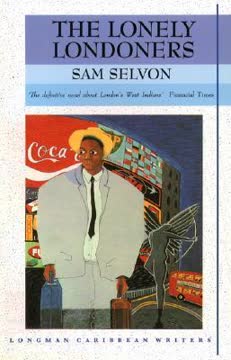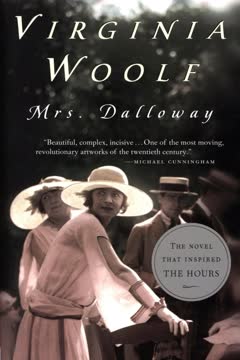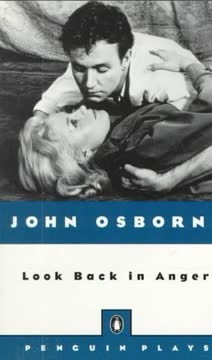Plot Summary
Arrival in the Fog
On a grim, foggy London evening, Moses Aloetta, a seasoned West Indian immigrant, boards a bus to Waterloo Station. He's tasked with meeting Henry Oliver, a newcomer from Trinidad, at the request of a friend. Moses is weary, both from the cold and from the endless stream of fellow countrymen arriving in London, all seeking his help. The city's fog mirrors the uncertainty and alienation Moses feels, and the journey to Waterloo is tinged with nostalgia and resignation. London, with its promise of opportunity, feels distant and unreal, a place both familiar and perpetually foreign. Moses's sense of duty and community compels him to help, even as he questions the cost to himself and the meaning of belonging in this vast, indifferent metropolis.
Moses: Reluctant Guide
Moses has become an unofficial guide for new arrivals, despite his own struggles. He helps newcomers find lodging and work, scattering them across London to avoid overcrowding and suspicion. The city is increasingly hostile, with headlines decrying the influx of West Indians. Moses's soft heart keeps him involved, but he's frustrated by the lack of reciprocity and the endless demands. His role is both a burden and a connection to home, as he remembers his own early days of desperation. The city's bureaucracy and the subtle, pervasive racism make every step harder. Moses's actions are driven by empathy, but he's haunted by the knowledge that London offers little comfort or security for men like him.
Galahad's First London Day
Henry Oliver, soon nicknamed Sir Galahad, arrives in London with nothing but bravado and a tropical suit. He's unfazed by the cold, at least outwardly, and determined to make his own way. Moses, both amused and exasperated, tries to prepare him for the realities of London life: the difficulty of finding work, the indifference of the city, and the subtle barriers of race. Galahad's confidence masks his anxiety; once alone, he's overwhelmed by the city's scale and anonymity. A brief encounter with a policeman and the cold indifference of passersby shake his bravado. Moses's guidance becomes a lifeline, and Galahad's journey from pride to vulnerability marks the beginning of his London education.
The Waterloo Welcome
At Waterloo, Tolroy, another Jamaican immigrant, awaits his mother's arrival. To his shock, she brings the entire extended family, overwhelming him with responsibility. The scene is chaotic and comic, as the family navigates the station, British customs, and a curious reporter. The episode highlights the communal bonds and expectations that immigrants carry with them, as well as the misunderstandings and stereotypes they face. The family's arrival is both a joyful reunion and a logistical nightmare, underscoring the challenges of migration and the persistence of Caribbean kinship networks in the face of London's coldness.
Tolroy's Family Surprise
Tolroy scrambles to house his unexpected family, relying on the informal networks of the West Indian community. The family's adjustment to London is fraught with confusion, homesickness, and the struggle to find work and accommodation. Tanty, the matriarch, becomes a fixture in the local shops, negotiating credit and asserting her presence. The family's story is one of resilience and adaptation, but also of the tensions that arise when old-world expectations meet the harsh realities of postwar London. Their experience reflects the broader challenges faced by the Windrush generation, caught between hope and disappointment.
Hustlers and Survivors
The narrative shifts to the colorful cast of characters who populate Moses's world. Cap, a Nigerian, survives through charm, schemes, and a revolving door of women. Big City dreams of winning the football pools and living large, but remains perpetually broke. Bart, light-skinned and anxious, tries to pass as Latin American and avoid the stigma of blackness. Each man hustles in his own way, navigating the city's indifference and prejudice. Their stories are comic and tragic, revealing the strategies of survival and the psychological toll of perpetual instability. The camaraderie among the men is both a source of strength and a fragile defense against loneliness.
Cap's Schemes and Women
Cap's life is a series of hustles, from evading rent to seducing women for shelter and money. He drifts from place to place, always on the edge of disaster but somehow surviving. His relationships with women—Austrian, French, English—are transactional and fleeting, yet he inspires a strange loyalty. Cap's escapades are both farcical and revealing, exposing the vulnerabilities and resourcefulness of immigrants in a hostile city. His marriage to a French woman is a comic episode, marked by deception and improvisation. Cap's story embodies the precariousness and unpredictability of life on the margins.
Bart's Search for Love
Bart, caught between worlds, is obsessed with respectability and acceptance. He clings to a failed romance with a white woman, Beatrice, searching London's streets and clubs in vain. Bart's anxiety about his skin color and status reflects the internalized racism and insecurity that haunt many of the characters. His attempts to assimilate—through dress, speech, and manners—are met with indifference or rejection. Bart's story is one of longing and loss, a poignant counterpoint to the bravado of Cap and Big City. His isolation is deepened by the city's indifference and the impossibility of true belonging.
Lewis and Agnes: Domestic Strife
Lewis, Tolroy's brother-in-law, is plagued by jealousy and insecurity. His marriage to Agnes is marked by suspicion, violence, and eventual separation. Lewis's inability to adapt to London's norms—especially regarding women's independence—leads to repeated conflict. Agnes, seeking autonomy, eventually leaves him, highlighting the changing gender dynamics within the immigrant community. Their story exposes the pressures of migration on family life and the ways in which old patterns are challenged by new circumstances. The domestic drama is both personal and emblematic of broader social changes.
Tanty's London Adventures
Tanty, the family matriarch, becomes a local character in the Harrow Road neighborhood. She negotiates credit at the grocery, asserts her rights in shops, and becomes a bridge between the Caribbean and London. Her adventures—navigating the tube, confronting shopkeepers, and managing the household—are comic but also heroic. Tanty's presence challenges stereotypes of passivity and dependence, embodying the resourcefulness and dignity of the older generation. Her story is a testament to the ways in which immigrants remake the city, creating new forms of community and belonging.
Galahad's London Transformation
Galahad gradually adapts to London, acquiring sharp clothes, confidence, and a sense of place. He revels in the city's romance—Piccadilly Circus, Charing Cross, the parks—and pursues relationships with white women. Yet beneath the surface, he grapples with the "colour problem," experiencing both desire and rejection. Galahad's transformation is both a triumph and a compromise, as he learns to navigate the city's codes while never fully escaping its prejudices. His journey reflects the possibilities and limitations of assimilation, and the enduring power of hope and reinvention.
The Colour Problem
The issue of race is ever-present, shaping the characters' experiences and self-perceptions. Galahad, in a moment of frustration, talks to his own black skin, blaming it for the discrimination he faces. The men encounter overt and subtle racism in housing, employment, and daily life. The city's indifference is compounded by exclusion and hostility, leading to moments of anger, resignation, and bitter humor. The "colour problem" is not just external but internalized, affecting relationships, ambitions, and self-worth. The characters' responses range from defiance to despair, revealing the psychological costs of living as outsiders.
Summer in the City
Summer transforms London, bringing warmth, color, and a sense of possibility. The parks fill with people, and the men enjoy fleeting pleasures—romance, parties, and camaraderie. The city seems briefly welcoming, and the hardships of winter are forgotten. Yet the joy is fragile, always shadowed by the knowledge that exclusion and struggle will return. The summer is a metaphor for the characters' hopes: bright but transient, unable to dispel the underlying loneliness. The season offers respite, but not escape, from the realities of immigrant life.
The Sunday Gatherings
Every Sunday, the men gather in Moses's room to share stories, seek advice, and find solace in each other's company. The gatherings are a ritual, a way to stave off loneliness and affirm their shared identity. The conversations are filled with humor, complaint, and longing, as the men recount their struggles and small victories. Moses, increasingly introspective, feels the weight of their collective burdens. The gatherings are both a lifeline and a reminder of their precariousness, as each man faces his own battles in the city.
The Dance at St Pancras
Harris, the Anglicized organizer, hosts a dance that brings together the community and exposes its divisions. The event is a microcosm of the immigrant experience: joy, rivalry, and the ever-present tension between assimilation and authenticity. Five Past Twelve, high on weed, disrupts the decorum, while Harris frets about respectability. The dance is both a celebration of Caribbean culture and a site of conflict, as old and new values clash. The episode captures the vibrancy and volatility of the community, and the ways in which public spaces become arenas for negotiation and self-expression.
Winter Hardships and Pigeon Hunt
As winter returns, work dries up and hunger sets in. Galahad, unable to find food, resorts to catching a pigeon in the park, risking the wrath of animal lovers. The episode is both comic and desperate, highlighting the lengths to which the men must go to survive. The city's indifference is starkest in winter, when cold and poverty press in. Yet even in hardship, the men find ways to adapt, drawing on memories of home and the support of each other. The struggle for survival is relentless, but so is the will to endure.
Moses' Reflections
Moses, the novel's moral center, becomes increasingly reflective. He contemplates his years in London, the dreams deferred, and the friends lost or changed. He is haunted by the question of return—should he go back to Trinidad, or is he now too much a part of London? The city has given him little, yet he cannot let it go. Moses's reflections are tinged with melancholy, as he recognizes the aimlessness and restlessness that define his life and the lives of his friends. The search for meaning and belonging remains unresolved, a perpetual tension at the heart of the immigrant experience.
The Endless Cycle
The novel ends as it began: with the men gathering, hustling, and dreaming, caught in the cycle of arrival and survival. The city remains indifferent, the challenges unending. Yet there is a stubborn resilience in the community, a refusal to give in to despair. The laughter, the stories, and the small acts of kindness sustain them, even as the future remains uncertain. Moses stands by the Thames, pondering the possibility of writing his own story, aware that the struggle continues. The cycle of hope and disappointment, of longing and endurance, is both the tragedy and the triumph of the lonely Londoners.
Characters
Moses Aloetta
Moses is the novel's central figure, a Trinidadian who has spent a decade in London. He is both a helper and an outsider, burdened by the endless demands of new arrivals yet unable to refuse them. Moses is compassionate but weary, his empathy tempered by disappointment. He serves as a mentor to Galahad and others, offering practical advice and emotional support. Psychologically, Moses is caught between nostalgia for home and resignation to his life in London. His reflections reveal a deep sense of loss and aimlessness, as he questions the meaning of his sacrifices and the possibility of return. Moses's development is marked by increasing introspection and a growing awareness of the limits of endurance and community.
Sir Galahad (Henry Oliver)
Galahad arrives in London full of bravado and naivety, determined to succeed on his own terms. His initial confidence masks vulnerability, and he quickly learns the harsh realities of the city. Galahad's journey is one of adaptation: he acquires the trappings of a Londoner, navigates relationships with white women, and confronts the "colour problem." His psychological arc moves from pride to humility, from outsider to partial insider. Galahad's resilience and capacity for reinvention are sources of hope, but he remains haunted by exclusion and the impossibility of full acceptance. His relationship with Moses is both filial and fraternal, a dynamic of guidance and rivalry.
Cap (The Captain)
Cap is a Nigerian immigrant whose life is a series of hustles and escapades. He survives through charm, deception, and a revolving door of women, always on the edge of disaster but never defeated. Cap's relationships are transactional, yet he inspires loyalty and affection. Psychologically, Cap embodies the resourcefulness and amorality required to survive on the margins. He is both admired and resented by his peers, a figure of comic excess and existential improvisation. Cap's development is static in some ways—he never truly changes—but his adaptability and refusal to be broken are a testament to the resilience of the dispossessed.
Bart (Bartholomew)
Bart is light-skinned and obsessed with respectability, attempting to pass as Latin American to avoid the stigma of blackness. He is haunted by a failed romance with a white woman, Beatrice, and his search for her becomes a metaphor for his longing for acceptance. Bart's psychological state is marked by insecurity, self-doubt, and internalized racism. He is both comic and tragic, his efforts at assimilation met with indifference or rejection. Bart's relationships with the other men are ambivalent; he is both part of the group and apart from it. His development is a slow descent into isolation and resignation.
Tolroy
Tolroy is a Jamaican immigrant whose life is upended by the arrival of his entire extended family. He is responsible, hardworking, and deeply committed to his kin, but the pressures of providing in a hostile city strain his resources and patience. Tolroy's psychological burden is immense, as he navigates the conflicting demands of tradition and survival. His relationship with his mother, Tanty, and the rest of the family is both loving and fraught. Tolroy's development is marked by increasing pragmatism and a gradual acceptance of the compromises required by life in London.
Tanty
Tanty is the family's matriarch, a force of nature who asserts her presence in the Harrow Road neighborhood. She negotiates credit, confronts shopkeepers, and becomes a local character. Tanty's psychological strength lies in her adaptability and resourcefulness; she refuses to be marginalized or silenced. Her relationship with the younger generation is both nurturing and contentious, as she insists on the values of home while adapting to new realities. Tanty's development is a testament to the power of agency and the ways in which immigrants remake the city in their own image.
Lewis
Lewis is Tolroy's brother-in-law, whose marriage to Agnes is marked by suspicion, violence, and eventual separation. He is unable to adapt to London's norms, especially regarding women's independence, and his insecurity leads to repeated conflict. Lewis's psychological state is one of anxiety and loss, as he clings to old patterns in a changing world. His relationship with Agnes is both loving and destructive, a microcosm of the pressures faced by immigrant families. Lewis's development is a slow unraveling, as he is left alone and bewildered by the new order.
Big City
Big City is a Trinidadian whose dreams of wealth and success are perpetually deferred. He is obsessed with winning the football pools and living large, but remains broke and dependent on the kindness of others. Big City's psychological makeup is a mix of optimism, denial, and bravado. He provides comic relief but also embodies the hopes and disappointments of the immigrant experience. His relationships are marked by camaraderie and rivalry, and his development is circular—always dreaming, never arriving.
Five Past Twelve
Five Past Twelve, so named for his dark skin, is a Barbadian who loves parties, women, and borrowing money. He is a fixture at community events, bringing energy and chaos wherever he goes. Five's psychological state is one of restless pursuit—of pleasure, acceptance, and escape. He is both admired and exasperating, a symbol of the community's vitality and its vulnerabilities. Five's development is static, but his presence is essential to the group's dynamic.
Harris
Harris is a Jamaican who has adopted English manners and customs, organizing dances and striving for respectability. He is anxious about the community's image and desperate to avoid scandal. Harris's psychological state is marked by insecurity and a desire for acceptance by the host society. His relationships with the other men are ambivalent; he is both a leader and a figure of mockery. Harris's development is a study in the tensions between assimilation and authenticity.
Plot Devices
Episodic Structure and Polyphony
The novel is structured as a series of loosely connected episodes, each focusing on different characters and incidents. This episodic structure mirrors the fragmented, precarious lives of the characters and allows for a polyphonic narrative, where multiple voices and perspectives coexist. The use of creolized English in narration and dialogue creates intimacy and authenticity, bridging the gap between teller and tale. The narrative moves fluidly between comedy and tragedy, individual and collective experience, past and present. Foreshadowing is subtle, often embedded in the characters' anxieties and dreams. The lack of a conventional plot arc reinforces the sense of aimlessness and repetition that defines the characters' existence, while the recurring Sunday gatherings provide a ritualistic anchor.
Analysis
The Lonely Londoners remains a seminal exploration of the postwar immigrant experience, capturing the hopes, disappointments, and resilience of the Windrush generation. Selvon's innovative use of creolized English gives voice to the voiceless, challenging literary conventions and asserting the legitimacy of Caribbean identity in the heart of the former empire. The novel's episodic structure and ensemble cast reflect the fragmentation and instability of migrant life, while its humor and lyricism offer moments of transcendence. At its core, the book interrogates the meaning of home, the costs of survival, and the psychological toll of exclusion. The characters' struggles with racism, poverty, and alienation are as relevant today as in the 1950s, resonating with contemporary debates on migration and multiculturalism. Selvon's London is both a site of possibility and a labyrinth of loss, and his lonely Londoners, in their laughter and longing, embody the universal search for dignity and connection.
Last updated:
Review Summary
The Lonely Londoners is a groundbreaking novel depicting West Indian immigrants in 1950s London. Written in Caribbean dialect, it follows Moses and other characters as they navigate racism, poverty, and cultural clashes. Readers praise Selvon's vivid portrayal of London, the authentic dialogue, and the mix of humor and pathos. The episodic structure and stream-of-consciousness passages draw both admiration and criticism. While some find the misogyny and lack of plot challenging, many appreciate the book's historical significance and universal themes of hope, identity, and belonging.
London Trilogy Series
Similar Books
Download PDF
Download EPUB
.epub digital book format is ideal for reading ebooks on phones, tablets, and e-readers.








